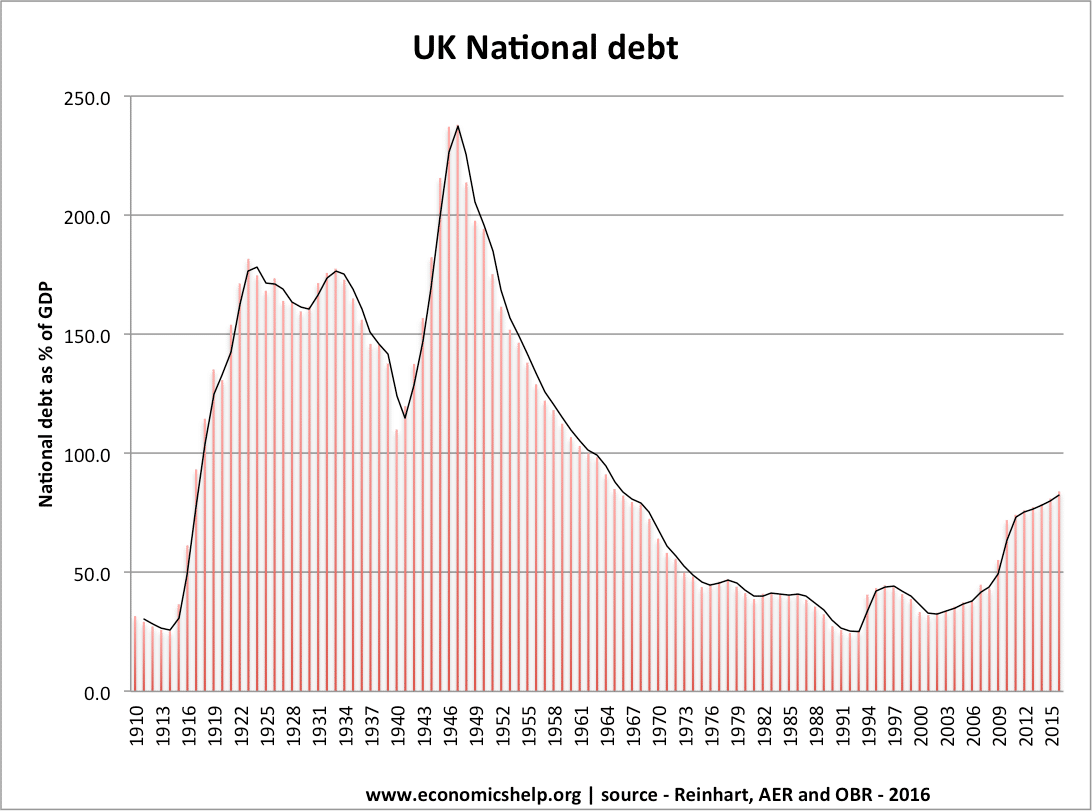UK Debt Post War
Readers Question: I thought your explanation about whether to worry or not about the National Debt was pellucid but I would like to know, from an economics perspective, why governments (and people) were not worried about the debt after World War 2 given that it was far higher for many years than the UK debt …

